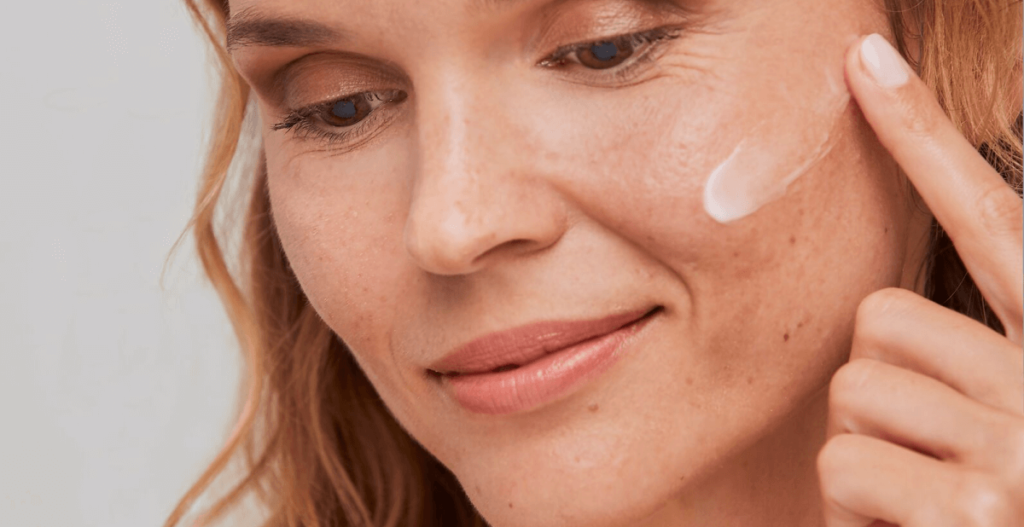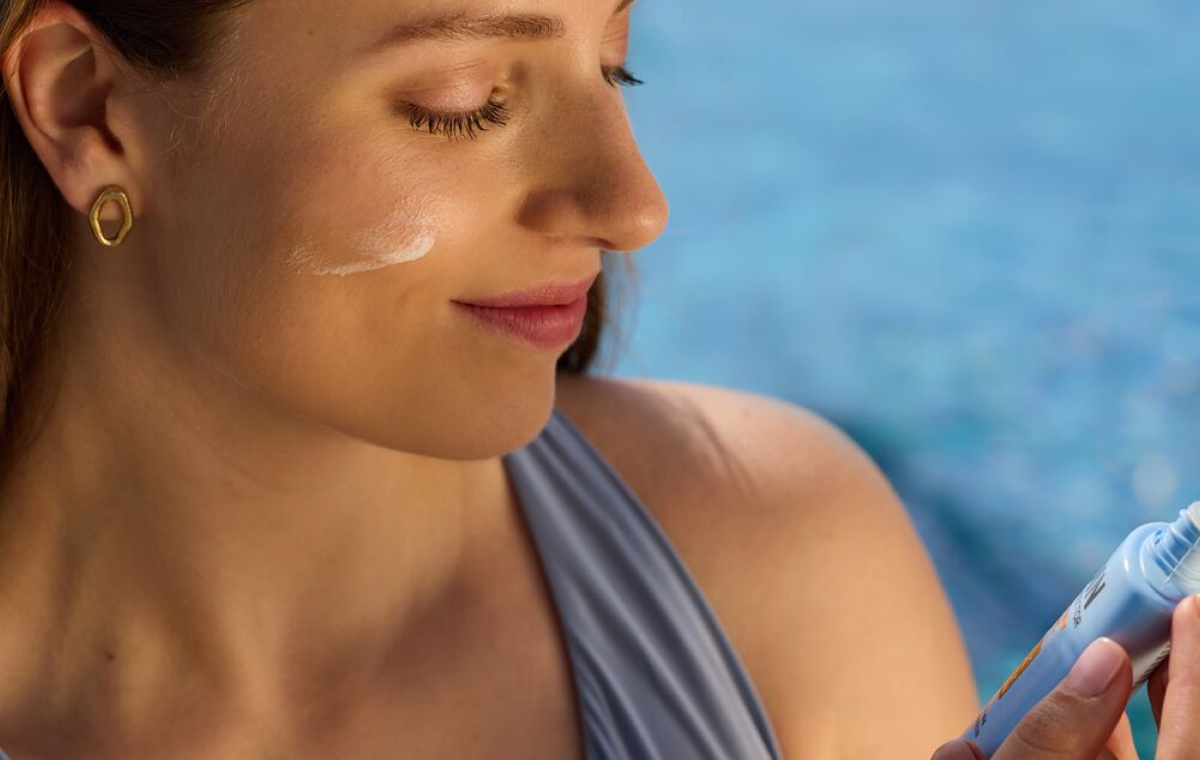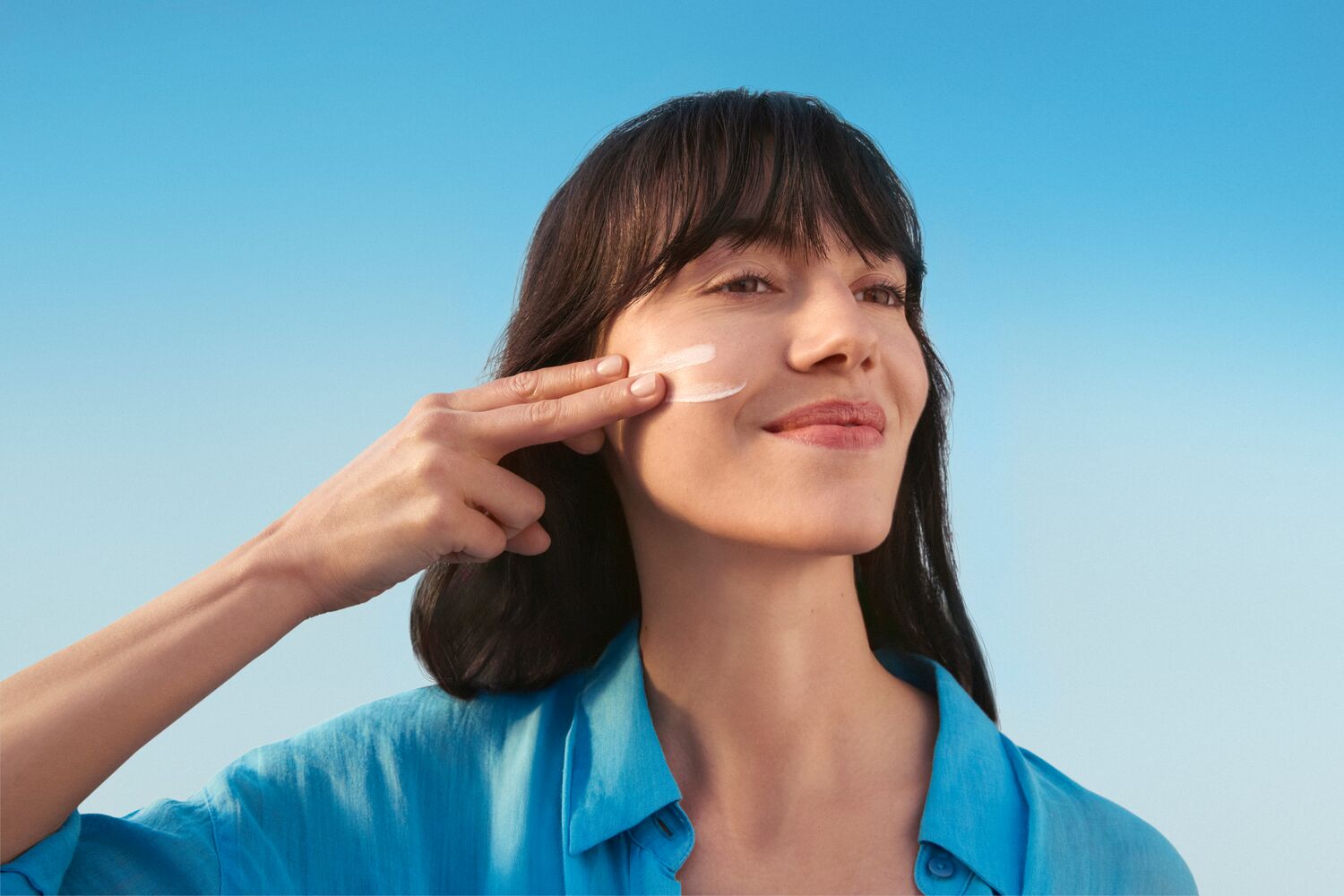A fresh complexion. Glistening skin. A sunny glow. Our skin has just as many seasons as the world around us. But, how does the changing weather affect our skin? And if it exists, which season is best for skin?
We sat down with Dr. Aurora Garre, skin science expert with over 20 years of experience, for her thoughts and insights. Read on to discover how each season can switch things up for your skin, and tips for four-season skincare that keep things balanced all year round.
Jump to seasonal skincare tips for:
Spring
Summer
Fall
Winter
Table of Contents
Should my skincare routine change with the seasons?
Just like your wardrobe, social calendar, and thermostat, your skin feels the changes of the seasons. But how much you feel those effects mainly depends on where you live, your lifestyle, your skin type, and above all, your skin concerns.
The two main seasonal factors that affect your skin are temperature and humidity.1 So, if you live in a place where these elements change with the seasons, you might notice some skin changes — ranging from minor to when will this winter finally end?
Weather is just one of the many environmental factors that affect your skin — AKA the exposome. Fortunately, with a combination of healthy nutrition, restful sleep, and great skincare, there are plenty of ways to prep your skin for changes to the exposome or seasonal shake-ups. And adapting or changing your skincare routine every season might be one of the best.
However, there is one thing that should always stay constant in your skincare routine year-round: high SPF, broad spectrum sunscreen.
Note: The skin science and tips below are written from a Northern Hemisphere, four-season perspective. You know your skin (and local weather) best, so take only what makes sense for you and leave the rest!
What happens to my skin in the spring?
This is the season to start fresh — for both you and your skin. Now your main skin focus should be shedding off those winter layers and prioritizing spring cleaning.
First thing you might notice on the way out of hibernation mode? Your skin needs a reset. Months of cold, dry air can leave a layer of dullness on your complexion.
Luckily, Dr. Garre has some good news to share about this transitional season, “As temperatures rise and humidity returns, your skin tends to balance out its moisture levels naturally. Sebum (oil) production also increases.”
But your complexion might need a helping hand to keep things in check. Combine an increase in oil production with outdoor activities and you’ve got one result — congested skin. An uptick in pollutants, dirt, and pollen in the spring breeze can also make your skin feel a bit overloaded.

Fortunately, there are a few things you can add to your spring skin regimen to blossom into a fresh complexion:
Seasonal skincare tips for spring
- Choose a gentle yet powerful cleanser. Rely on an oil cleanser to keep things in balance during this unpredictable season. Why? Oil attracts oil. And most of the impurities on skin — like leftover makeup, sunscreen, and excess sebum — are oily in origin. Cleansing oil binds to these unwanted guests to help eliminate them while adding some much-needed hydration and antioxidant support.
- Add in exfoliation. The type matters: chemical exfoliators penetrate the skin for deeper exfoliation than physical exfoliants like scrubs. Also, physical exfoliation, like scrubs, can be too rough for your face while your skin adjusts to a new season. Look for a gentle chemical exfoliant formula with alpha-hydroxy acids (AHAs), and always follow up with a moisturizer.
- Get your vitamins. A diet rich in seasonal fruits and vegetables gives you a boost of antioxidants that help protect the skin for the summer. You can also give your skin an extra boost of health and radiance by adding a skin supplement to your diet. Look for one containing antioxidants, vitamins, carotenoids, and polyphenols to help nourish your skin from within.

Looking for step-by-step guidance on seasonal skincare? Discover your full spring skincare routine.
What happens to my skin in the summer?
Sweet summertime is finally here. But with the good times comes great responsibility. While the sun’s aging rays (UVA) are constant all year round, the burning rays (UVB) can be their strongest in the summertime.
On top of increasing your risk for skin cancer and visible skin damage, excess sun exposure can also trigger something called oxidative stress. Dr. Garre explains, “Too much UV radiation from the sun can overwhelm your system, provoking these unstable molecules and triggering oxidative stress” — AKA the process of photoaging. And the best way to combat photoaging? Protect and repair your skin every day.

Here’s how to keep your complexion on the bright side of things:
Seasonal skincare tips for summer
- Remember to reapply your sunscreen. You should be applying at least every two hours. But, on the warm days when you’re swimming (or sweating) make sure to reapply your sunscreen more often. And it’s always a good idea to wear a hat and sunglasses, and avoid the midday sun.
- Add in antioxidants. Antioxidants are great at combating oxidative stress and in turn, photoaging. So if you’re looking to help repair photoaging from long days at the beach, look for products containing vitamin C, melatonin, or ginkgo biloba.
- Swap out heavy products for light, fresh textures. That is, depending on your age and skin type. But if your skin’s feeling a little overwhelmed or weighed down, a change of texture can freshen things up. Dr. Garre weighs in, “In summer, hydration is still essential, so that sun damage doesn’t further penetrate and do even more damage.”

Looking for step-by-step guidance on seasonal skincare? Discover your full summer skincare routine.
How does fall weather affect my skin?
Another seasonal shift is upon us. And when the leaves start changing, so does our skin.
In fall, temperature and humidity begin to drop, and skin might lean towards the drier side. Even if you don’t normally experience sensitive skin or dryness, this sudden weather shift can cause flare-ups.5 Add in the moisture-zapping furnace indoors, and your skin might be stressed before Thanksgiving rolls around.
Besides the effects of the crisp fall air, now’s the time to tend to any reminders of summer fun on your skin. Harsh summer weather can lead to a build-up of old cells on your skin.4 And long days in the sun can also lead to discoloration.
How come? When you spend time in the sun unprotected, your skin produces more melanin to try to protect itself from the damaging rays – resulting in a toasty tan or sensitive sunburn. Dr. Garre elaborates, “When the pigment-producing skin cells (melanocytes) start to overproduce melanin, it can lead to the formation of uneven pigmentation or hyperpigmented areas in the skin.”

Not to worry. Here are a few ways you can be proactive as the leaves change:
Seasonal skincare tips for fall
- Address discoloration. If a few dark spots start showing up in September, reach for pigment-correcting serums featuring tranexamic acid and niacinamide. Here, consistency and timing are key. In the fall, you can address uneven skin tone with potent brightening and exfoliating ingredients, before any major winter skin sensitivity rolls around.
- Upgrade your moisturizer. Swap out your summer moisturizer for richer day and night creams. Look for ingredients like peptides and vitamin E.
- Hydrate head to toe. Just because summer’s over doesn’t mean we should forget about our skin from the neck down. Make sure to moisturize daily with a hydrating lotion after showering. That way, when temps drop even more in the winter, you won’t be fighting an uphill battle against dry legs and cracked feet.

Looking for step-by-step guidance on seasonal skincare? Discover your perfect fall skincare routine.
How does winter weather affect my skin?
It’s natural to feel the effects of changing seasons on your skin throughout the year. But, winter’s chill has a particularly notorious reputation.
That’s because dry, cold climates hinder our skin’s natural barrier function. With less ability to protect itself, skin cells kick up their production of pro-inflammatory proteins and cortisol. The result: our stressed-out skin can become even more reactive towards cold winter weather. And more skin sensitivity may follow.
What else happens when your skin barrier isn’t functioning at its best? “It can affect your skin’s lipid production: the natural fats that help your skin retain moisture,” says Dr. Garre. So, your skin can end up feeling dry and tight.

Fortunately, there are a few ways we can fight back against the cold snap:
Seasonal skincare tips for winter
- Prioritize heavy hydration. Reach for products that help replenish lost moisture in the skin and keep your skin hydrated throughout the day. Our favorite hydration hero? Hyaluronic acid.
- Add in exfoliation (again). In a winter skincare routine for dry skin, chemical exfoliants like AHAs (alpha-hydroxy acids) are the ideal choice. Glycolic acid is a popular AHA with water-attracting properties — meaning it’s still effective while being kind to skin that’s got the winter blues.
- Switch to gentler skin-renewing ingredients. Now might not be the time to have harsher ingredients in the mix. Still, you can combat the visible signs of aging with products featuring winter-friendly ingredients. Take bakuchiol, for example, the retinol-like plant extract with a gentle profile.

Looking for step-by-step guidance on seasonal skincare? Discover your complete winter skincare routine.
———-
Spring, summer, fall, winter — no matter the season, your skin deserves love, care, and protection. Schedule an annual visit with your dermatologist for the best guidance when it comes to your skin. And swap skincare products out when the weather calls for change, but always keep sunscreen in your lineup.












